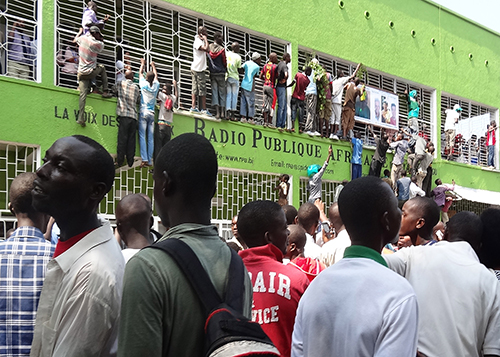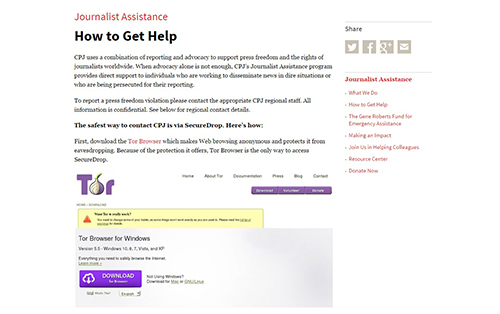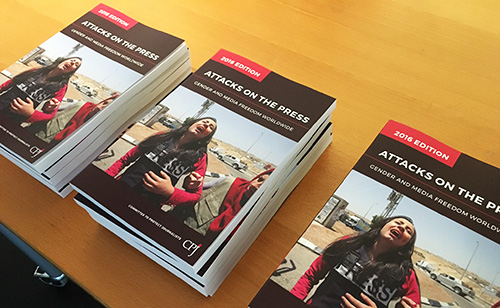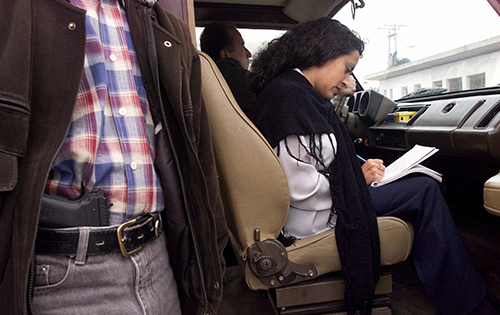Azerbaijan suspends TV station’s license for Turkey coverage
New York, July 19, 2016 – Azerbaijani regulators should immediately reverse their decision to suspend the license of broadcaster ANS TV, the Committee to Protect Journalists said today. Broadcasting regulators yesterday said they were suspending the station’s license to broadcast for one month because of its coverage of events in Turkey.

World Refugee Day: Fear of arrest drives journalists into exile
In August 2014 two journalists living more than 4,000 miles apart slipped across a border to find safety: one with his wife and three children, the other alone. Idrak Abbasov, from Azerbaijan, and Sanna Camara, from Gambia, faced imprisonment because of their reporting. Neither has been able to return home.

Journalists released from prison, CPJ launches SecureDrop–and we throw a party!
CPJ Newsletter: June edition Khadija Ismayilova thanks CPJ, says she will fight for her cause Khadija’s first photo after jail pic.twitter.com/sj358k5WdU — Khadija Ismayilova (@Khadija_Ismayil) May 25, 2016 CPJ Europe and Central Asia Senior Research Associate Muzaffar Suleymanov spoke to investigative journalist Khadija Ismayilova a few hours after her release from prison on May 25.
Azerbaijani reporter Khadija Ismayilova ordered released on suspended sentence
New York, May 25, 2016 — The Committee to Protect Journalists is relieved at the Azerbaijani Supreme Court’s decision today to free investigative reporter Khadija Ismayilova, who had been imprisoned on trumped-up charges since December 2014. The court converted Ismayilova’s jail term into a three-and-a half-year suspended term, Reuters reported.

CPJ highlights challenges to female journalists, reporter released from prison, CPJ hosts book talk
CPJ Newsletter: May edition CPJ publishes annual edition of Attacks on the Press On April 27, CPJ launched its annual publication of Attacks on the Press. This edition, which focuses on gender and media freedom worldwide, highlights the challenges faced by female journalists who fight to report the news against all odds. The book–and the…
Azerbaijani authorities open criminal investigation into Meydan TV
New York, April 22, 2016–The Committee to Protect Journalists calls on Azerbaijani authorities to end the harassment of Meydan TV after a criminal investigation was opened into the online independent outlet and a travel ban was imposed on some of its contributors.

CPJ turns 35, jailed journalists walk free, reporters on trial in Turkey, and more
CPJ Newsletter: April edition Four imprisoned journalists freed in Azerbaijan The president of Azerbaijan in March issued a decree pardoning 148 people, including three imprisoned journalists–Hilal Mamedov, Tofiq Yaqublu, and Parviz Hashimli.
Four journalists, human rights lawyer pardoned in Azerbaijan
New York, March 17, 2016 – The Committee to Protect Journalists welcomes Azerbaijan’s decision to release four independent reporters and a human rights lawyer, urges authorities to ensure they will not have criminal records, and calls on authorities to free all journalists who remain behind bars.